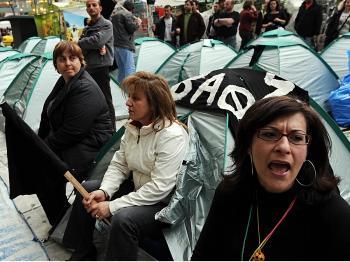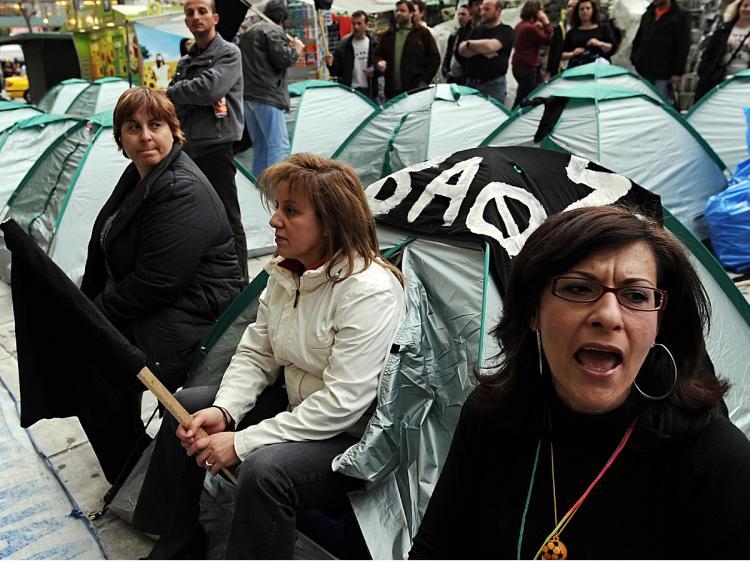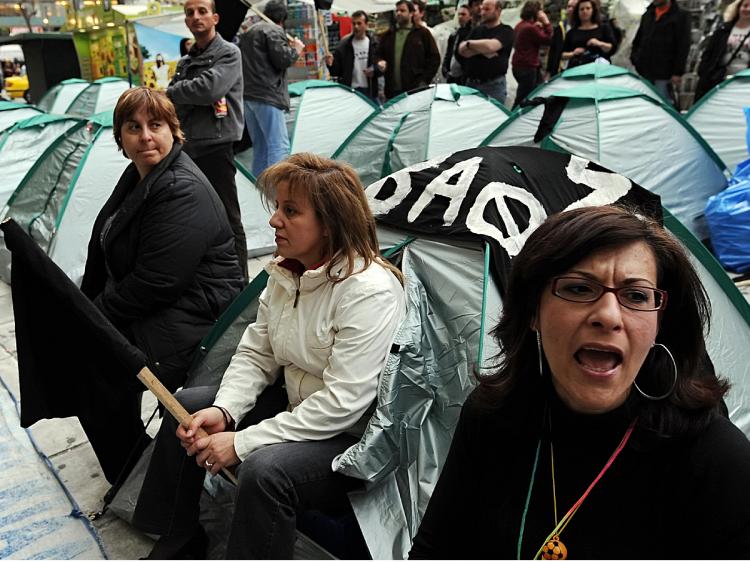Since November 2008 there have been 16,831 dismissals, and in March alone there were 4,019, mostly in textiles.
Strikers are complaining about the dismissals, unemployment, low-salaries, and retirement and insurance issues.
President of Greece, Karolos Papoulias, also leader of New Democracy, the centre-right political party who forms the Greek government since 2004, is reported to have said “Workers shouldn’t pay for the crisis, but those who provoked the crisis and are continuing to insist on losing nothing from all they have got in the past and are thinking to get in the future.”
Strikes, however, are only one of the ways the citizenry are expressing their dissatisfaction.
Since the beginning of March, anarchists have been engaging in organised acts of destruction in parts of Greece.
The actions are similar to those that took place near the in the end of 2008, where the murder of a school student by police sparked riots and looting in major cities. The target of the continued actions appears to be economic entities like banks, stores, and political offices. Methods employed include bombs, arson, threatening messages, and destruction of public transportation systems. In one such incident, a whole train station was burnt down.
In a recent case on March 31, an attack on a building went for 15 minutes. No suspects were identified, however, despite the building being located minutes away from a police station.
Greek citizens and foreign consulates find police protection inadequate or even absent.
In the meantime, Amnesty International has published a report condemning Greek police for severe human rights violations, and demanding that the government conduct research into any systematic problems the Greek police force may have.
Their report says that after January 2009 there has been an increase in complaints of human rights violations against Greek police, including claims of arbitrary arrests and abuse of peaceful demonstrators. Among them it is alleged that minors were detained and denied contact with a lawyer.
The report also emphasizes the low morale of Greek police officers, their low wages, inadequate training, and reception of threats from hostile forces.





